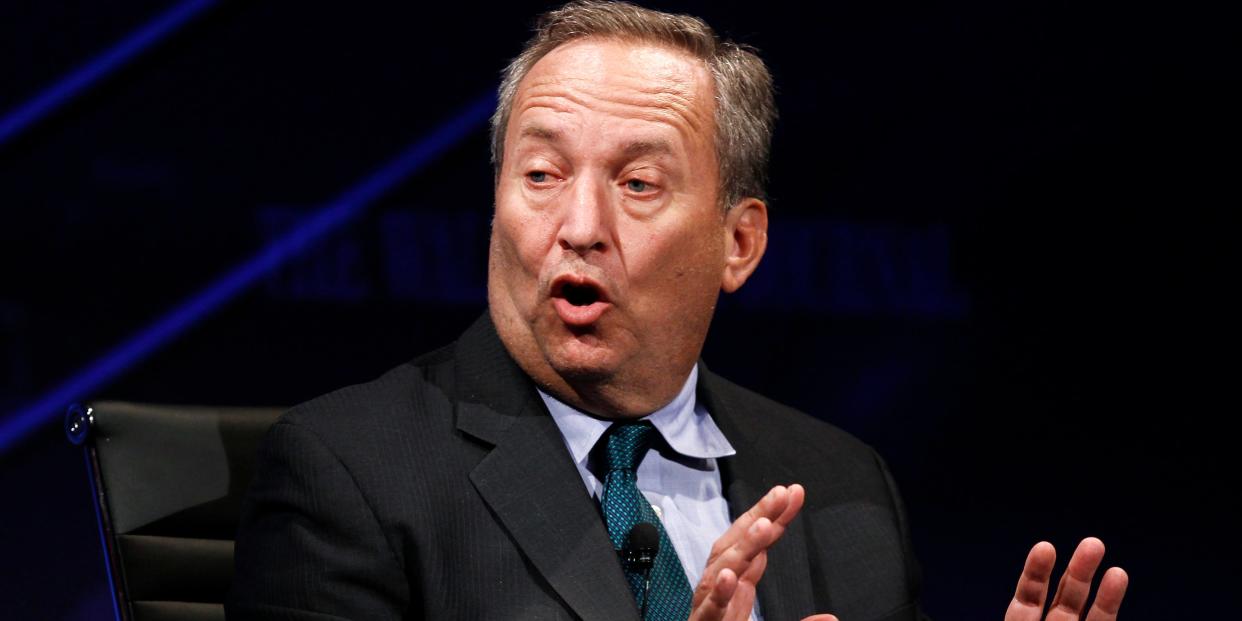Larry Summers says Silicon Valley Bank doesn't present systemic risk as long as it's handled reasonably

Former Treasury Secretary Larry Summers said Silicon Valley Bank won't be a source of systemic risk.
But he told Bloomberg TV that the crisis at the regional lender must be handled reasonably.
"What is absolutely imperative is that, however this gets resolved, depositors be paid back, and paid back in full."
Former Treasury Secretary Larry Summers said the crisis surrounding Silicon Valley Bank won't create a systemic risk to the broader financial system so long as customers don't take a haircut.
"What is absolutely imperative is that, however this gets resolved, depositors be paid back, and paid back in full," he told Bloomberg TV in an interview.
Summers added there could be some risk to banks' asset values, but any wider repercussions would be muted.
Shares of Silicon Valley Bank stock have plunged more than 86% over the last two days, with venture capital-backed startups pulling their deposits. Early Friday, trading was halted for the stock, and SVB is now seeking a sale after failing to raise fresh capital, according to CNBC.
"I don't see — if this is handled reasonably, and I have every reason to think that it will be — that this will be a source of systemic risk," Summers maintained, adding that there will still be issues with SVB that warrant scrutiny from regulators.
Meanwhile, share prices of other bank stocks also have tumbled since Thursday. JPMorgan, Bank of America, Wells Fargo have all sold off. And regional lenders like First Republic, Signature Bank and PacWest are also plunging.
But Summers said the sector-wide sell-off may have gone too far, and that there could be a need for some consolidation among financial firms.
"You saw substantial moves even in the country's largest banks in their stock prices," he said. "I think there may well be an element of overreaction in that."
Bank of America strategists said Friday that the sell-off in bank stocks highlighted the realization among investors that a higher interest rate environment was negative for earnings.
At the same time, however, the strategists echoed Summers' view that there was some overreaction at play.
"We believe that the sharp sell-off in bank stocks yesterday (large-cap bank index -7.7% vs. -1.7% S&P 500) was likely overdone as investors extrapolated idiosyncratic issues at individual banks to the broader banking sector," strategists wrote in a note.
Read the original article on Business Insider

